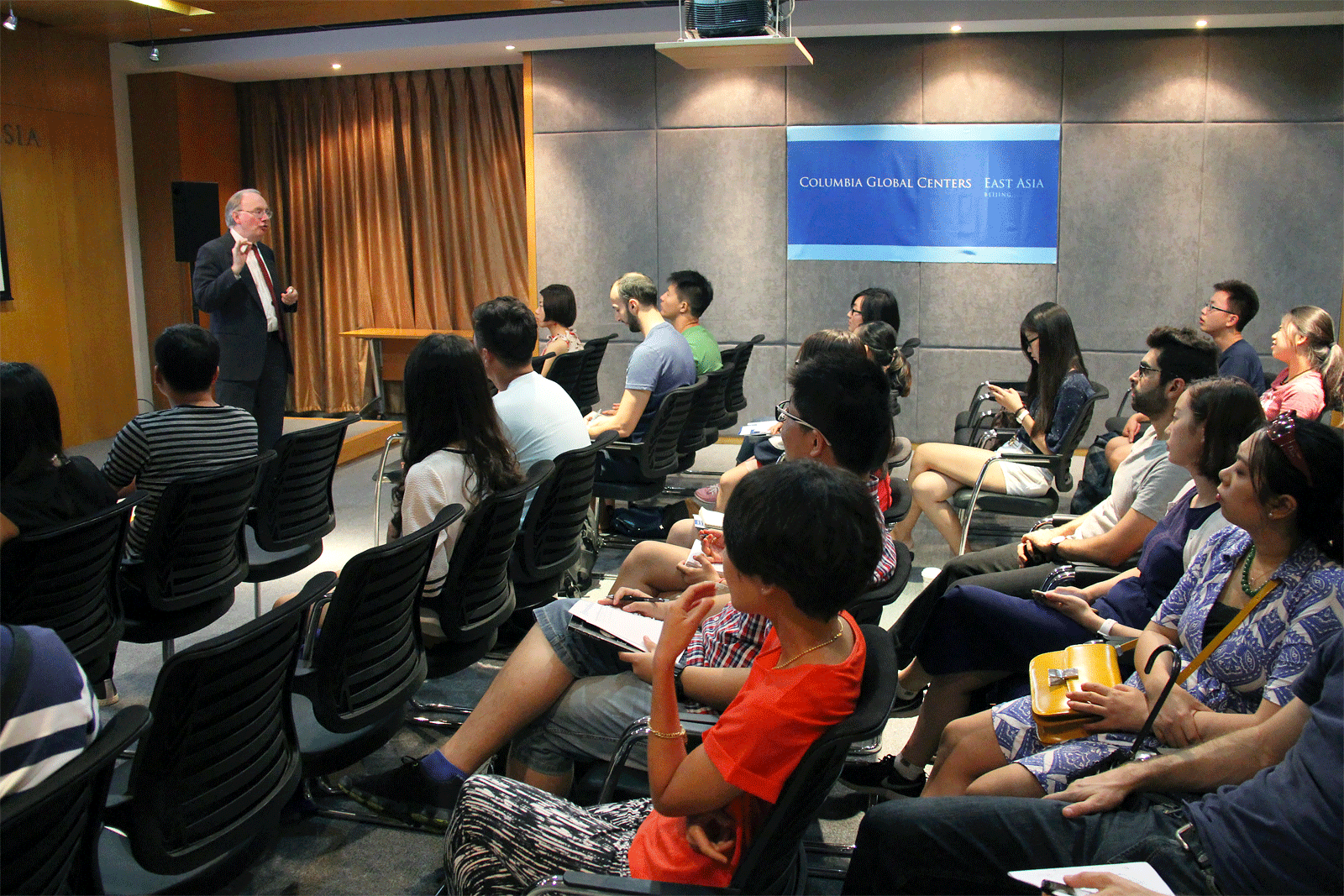Richard R. John, professor of history and communications at Columbia Journalism School, gave a public talk on the history of global communications networks at the Columbia Global Centers | Beijing on August 20. He also met with prospective students to Columbia Journalism School for a discussion on journalism-related topics.
The public talk “From Franklin to Facebook – The United States and the Global Communications Networks” has an emphasis on the long history of engagement of American policymakers, reformers, and entrepreneurs with global communications.
In his speech, Professor John led the audience through the “two centuries of creative statecraft” of communications networks, from the beginning of and history of the postal system, telegraph and telephone, radio and television, to the popularization of the Internet. He illustrated the significant role that U.S. government plays in the development of communications networks through law enforcement, Constitutional Amendments and protections, and federal legislation, as well as by creating the infrastructure to extend communications globally through underwater trans ocean cables.
He discussed the financial success and popularity of social networks like Facebook, and offered his perspective about the relationships between government control and company autonomy and boundary pushing on issues of privacy and information sharing with government, such as the recent revelation that ATT shared information with the U.S. government’s NSA.
He shared some slides such as a “Map of Internet Freedom”, “The Internet’s ‘Black Hole’” and other maps showing the global reach of internet social networks like Facebook, the blocking of sites and free access to the internet in China and a few other locations. Professor John emphasized that, “society works better when ordinary people have access to information that they need and is related to them”. And he added that limiting access to information is, “not a matter of ‘infant industry protectionism’, but a matter of better governance”. He further concluded that the sound progress of global communications networks lie in the cooperation among government, investors, and communications corporations.
As one of the top journalism schools in the world, Columbia Journalism School attracts outstanding students, and there are many students eager to learn about the programs the school offers and the admission process. Thus, in the one-hour meet-and-greet, Professor John introduced some of the master programs at Columbia Journalism School, especially the M.A and M.S. programs, which are available and appropriate for a broad spectrum of Chinese students, noting that “these intensive programs would buttress students’ future career development”.
Professor John also noted challenges that most Chinese journalism students might face, such as the language barrier and culture differences. “But such challenges would not necessarily overshadow Chinese journalism students’ preeminence”, he added that, “students should be certain about their long-term career goals before they receive professional training”.
(Contributed by Shenli Cai; Edited by Joan Kaufman)
